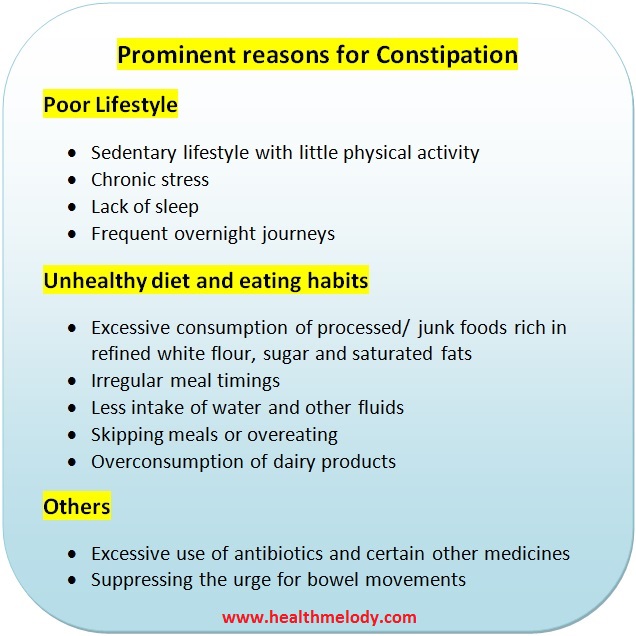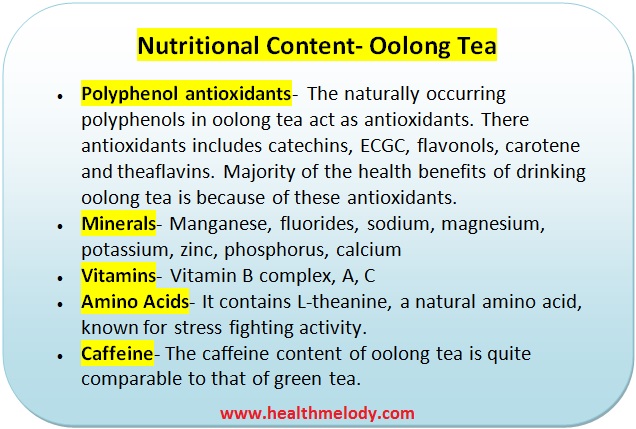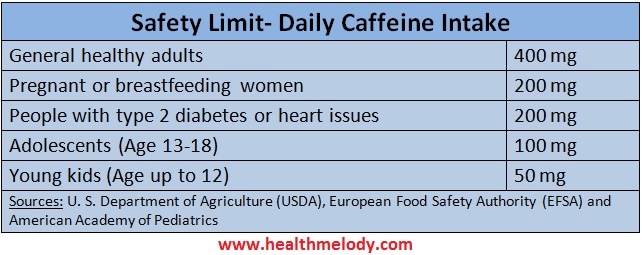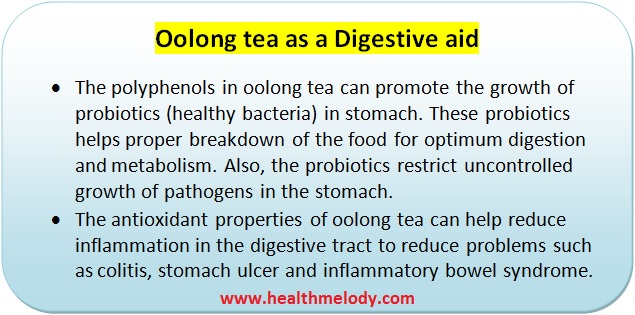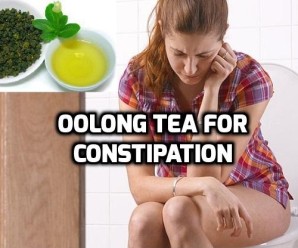
Oolong tea for Constipation: Healthy tea for Constipation
Oolong tea is a low-caffeine, natural tea- rich in polyphenol antioxidants and nutrients. The therapeutic benefits of oolong tea are quite similar to that of green tea, but, with a mild tea. Unlike green tea, it doesn’t have a bitter, grassy taste. Rather it has a mild, earthy taste. The habitual coffee (or black tea) drinkers would find it easy to adopt oolong tea in their daily routine than green tea because of its appreciable taste. In China, it is also known as “slimming tea”- boosts the body metabolism and aids in digestion to promote weight loss.
In this post, we would discuss the benefits of oolong tea for constipation- a common gut related disorder which needs immediate attention to ward off the risk of chronic diseases afterwards.
What causes constipation
The most common symptoms of constipation are
- Infrequent/ less bowel movements than the usual
- Difficulty in bowel movements due to hardening of stools
There is a general saying- Constipation is the mother of all diseases. Rightly so!
But due to a hectic, busy lifestyle- occasional constipation is quite common these days and people don’t take it seriously. Chronic constipation, if left untreated, can lead to various diseases- indigestion, poor appetite, acid reflux, fatty liver, hemorrhoids (piles), skin allergies, acne, arthritis, diabetes, hypertension and even cancer.
A healthy life begins with a clean colon. A smooth bowel movement in the morning makes you feel fresh and energetic throughout the whole day.
Oolong tea- A brief intro
Oolong tea is manufactured from the leaves of the same plant which is used to manufacture green tea and black tea. The difference is- degree of oxidation (fermentation) during the manufacturing process. Green tea is unoxidized whereas black tea is fully oxidized- oolong tea lies in between; it is semi (partially) oxidized. That’s why it has a distinct taste, aroma and color and several interesting health benefits.
Oolong tea is more popular in China and Taiwan- the local Chinese name is Wu long tea.
Caffeine and Constipation
Generally, people suffering from constipation are advised to cut down on coffee (or black tea) consumption because of the high caffeine content in these beverages.
When consumed in excess- the below effects of caffeine can worsen constipation symptoms:
- Caffeine in dehydrating in nature. Hence, it can strip off moisture from the already hardened stools to intensify the problem.
- High intake of caffeine can exert a diuretic effect on your body. It would stimulate your kidney to expel more water through urination and aggravate the constipation symptoms.
- Too much consumption of caffeine is a gut irritant. It is highly acidic in nature and can worsen the gut symptoms like bloating, acid reflux, bowel inflammation, leaky gut and indigestion.
So, how much caffeine intake is safe on a daily basis?
- The caffeine content in one cup (8 ounces/ 250 ml) of brewed coffee is around 100-130 mg. Hence, a healthy adult can drink 2-3 cups of brewed coffee every day without any issues.
- If suffering from constipation and you are a habitual coffee drinker, then try to reduce the number of cups- not more than 1 to 2 cups per day till the symptoms get normal.
How much caffeine in Oolong tea
Various tea varieties- green, oolong and black- come from a common plant and all contain caffeine. The caffeine content depends upon various factors including:
- Tea plant cultivation conditions
- Tea manufacturing process
- Tea brewing process variables like water temperature, loose tea or tea bag, tea steeping time
Hence, it is quite difficult to recommend exact caffeine content for any tea variety and caffeine content is better suggested in ranges.
- The caffeine content in oolong tea is quite at par with green tea.
- Due to high degree of oxidation, black tea contains more caffeine than green tea and oolong tea.
- Caffeine content in oolong tea (or green tea) is almost one-fourth that of brewed coffee.
In short, oolong tea is a low-caffeine natural beverage with antioxidants and nutrients.
Oolong tea for constipation
- Boost the body metabolism
Constipation is a metabolism disorder- poor, sluggish body metabolism slows down the digestion process and aggravates constipation. Oolong tea contains cathechins- a type of antioxidants- that team up with caffeine to accelerate the process of energy expenditure to stimulate body metabolism.
A study published in the Journal of Medical Investigation, Aug 2003 observed that drinking oolong tea can speed up the body metabolism by up to 10% than drinking plain water. The body metabolism was checked two hours after drinking the tea and it was measured in terms of energy expenditure.
- Reduces obesity
Obesity and constipation have a few things in common- poor diet, unhealthy lifestyle, lack of physical activity and chronic stress. A community based study conducted in Iran observed that 60% of the people dealing with chronic constipation were overweight.
The polyphenol antioxidants in oolong tea can help here!
Researchers at the Ehime University, Japan evaluated the anti-obesity action of oolong tea. The obese mice (fed with high-fat diet) were administered oolong tea for 10 weeks. It resulted in significant reduction in obesity and fatty liver symptoms.
Read more: Slippery elm for weight loss
- Increases fluid intake
As noted above, less intake of water and other fluids is one of the most common causes of constipation. An average adult should drink consume 8 to 12 cups (2-3 liters) of fluids every day. It includes water and other fluids like tea, coffee, milk and juices.
Some people are terrible at drinking water because its tasteless. To them, the mild, earthy taste of oolong tea can prove a good alternative. Drinking 3 to 4 cups of oolong tea every day would increase the fluid intake without compromising on taste.
- Promotes digestion
Constipation is the inevitable result of a poor digestive system. Constipation is almost out of the question if you properly digest the food. Poor digestion implies accumulation of undigested food wastes in the gut. The prolonged retention of undigested food in the stomach would lead to rotting and fermentation- making it a perfect environment for the pathogens (disease causing microbes) to grow and proliferate. Such a situation can cause bowel inflammation and reduced frequency of bowel movements.
Read more: Turmeric for indigestion
- Increases bile excretion
Oolong tea helps your body to excrete more bile. Bile is nothing but cholesterol. It adds moisture to the hardened stools and acts as a natural laxative to assist in smooth passage of the stools.
- Oolong tea reduces stress
Chronic stress and anxiety can make a person constipated. Regular drinking of oolong tea can help here. Oolong tea contains caffeine, antioxidants and theanine.
Caffeine is a well know mind stimulant- increases mental alertness and freshness.
Antioxidants neutralize the free radicals in your body to reduce oxidative stress. ECGC, a type of antioxidant in oolong tea, has relaxing properties.
Theanine has psycho-protective properties- relaxes the mind, controls the overproduction of cortisol hormone, lifts the mood and improves sleep quality.
Cortisol, also known as the stress hormone, is released in excess by the adrenal glands during stressful conditions. The overproduction of cortisol hormone due to chronic stress can have devastating effects on your body such as- spike in blood sugar, hypertension, weak immune system, poor digestive health and obesity.
The collective effect of caffeine, antioxidants and theanine make oolong tea a perfect natural beverage to tame stress in the day to day life.
A case study reported in the Journal of Health Science, Aug 2003 evaluated the anti-stress activity of oolong tea on 55 university students from China. They were randomly divided in three groups and served 4 cups of oolong tea, barley tea or normal plain water for a period of 1 week. On the last (7th) day, they were assigned overnight workload and placed in the classroom. The students who drank oolong tea experienced less elevation in cortisol levels than barley tea or water. Also the other symptoms of vigil stress like eye fatigue, headache and shoulder stiffness were relieved in oolong tea students.
How much to drink
The recommended dosage is 3 cups of oolong tea every day- around 1 hour after the meals- breakfast, lunch and dinner.
Avoid drinking it empty stomach in the morning or before breakfast as it may upset the stomach.
Avoid drinking it late at night as it may induce sleeplessness.
Oolong tea is a 400 years old traditional Chinese tea without any side effects as such. Drinking too much of it may cause side effects related to caffeine abuse such as insomnia, frequent urination, headache, nausea and sweating.
From where to buy
The color and taste of oolong tea vary according to the degree of oxidation. The less oxidized tea leaves would be greenish in color and its infusion would be of golden color. The more oxidized tea leaves would be dark in color and would yield a reddish brown tea infusion.
Buy oolong tea of a reputed brand from a store near to you or check Amazon for some good deals:
If you are from USA, click here
If you are from UK, click here
If you are from India, click here
Conclusion
Drinking oolong tea would help ease constipation symptoms. But, long term relief would be achieved by making positive changes in diet and lifestyle:
- Drinking enough water and other fluids
- Including physical workout in the daily routine
- Eating more of raw green vegetables and fruits
- Eating whole grains, oatmeat, brown rice and whole wheat bread to consume more dietary fiber
- Yoga, meditation and tai-chi for stress relief
- Proper sleep
- Cutting down on smoking and alcohol consumption
References
https://en.wikipedia.org/wiki/Oolong
http://www.efsa.europa.eu/en/press/news/150115
https://www.psychologytoday.com/blog/teen-angst/201305/over-caffeinated-teens
http://lpi.oregonstate.edu/mic/food-beverages/tea
http://jhs.pharm.or.jp/data/49(6)/49_436.pdf
https://www.ncbi.nlm.nih.gov/pubmed/13678386
https://www.ncbi.nlm.nih.gov/pubmed/19565043
https://www.ncbi.nlm.nih.gov/pubmed/10094584
https://www.ncbi.nlm.nih.gov/pubmed/16962743

